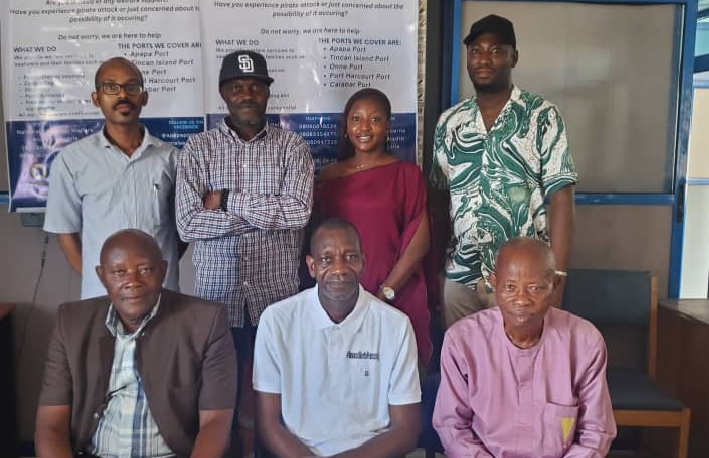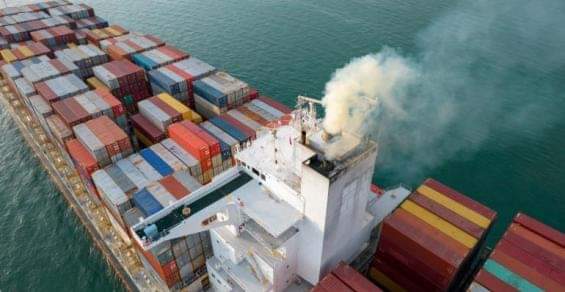SEAFARERS’ DAY: NSWBN Tasks NIMASA To Proffer Futuristic Solution On Ships Decarbonization
By Roland Ekama
The National Seafarers’ Welfare Board of Nigeria (NSWBN) has tasked the Nigerian Maritime Administration and Safety Agency (NIMASA) to be futuristic towards addressing the issues of decarbonization of vessels ahead of the adoption of zero-emission by 2030.
Worried that Nigerian seafarers’ and ship owners might be affected through job displacement and low patronage on investments, the board stated that the nation’s apex maritime regulatory authority should be proactive thus be abreast with the dynamics that surrounds the 2030 adoption of vessels zero emissions .
The decarbonization of shipping requires a global effort, with shipowners, operators, governments, and industry stakeholders working together to achieve this goal.
Speaking at a webinar meeting held on Saturday 22 June 2024 put together by the National Seafarers’ Welfare Board of Nigeria (NSWBN) in commemoration of Day of the Seafarers,’ Legal Adviser of the board, Barrister Osuala Nwagbara stressed the need for the apex maritime regulatory agency and stakeholders to be proactive by ensuring that ship owners and seafarers’ are protected ahead of the global vision for shipping development
Nwagbara a seasoned maritime lawyer who raised concerns about the fate of the Nigerian seafarers’ by 2030 added that advocation is key for African seafarers’ to streamline their operations in a bid to participate in global shipping business.

Part of ways for African seafarers’ can align with the adoption , the maritime lawyer noted that NIMASA most be in the forefront of ships decarbonization in the continent by ensuring that they meet with the requirements.
The lawyer said NIMASA should lead the way into such discussion thus , take steps in furtherance of protecting direct investment in the country .
He stated that experts should participate in advocacy for Africa seafarers’ to be relevant and compete favourably with their foreign counterparts.
- Advertisement -
He pointed out that”We need to drag NIMASA in this discourse to know where they stand in the decarbonization of vessels via 2030. In that way , all of us will know where Nigerians or Africa seafarers’ are and what to possess. It is important to bring people who are experts to participate and tell us the position of Africa uon this issue.”
According to him, training and retraining is the only solution for Africa seafarers to compete with foreigners on decarbonization of ships.
Secretary, Board of Trustee (BOT), NSWBN , Dr. Amos Kuje stated that the dynamics of decarbonization must not be overlooked by the regulatory agency .
Representative of Maritime Association for Africa ,Maria Ugbugo from Ghana, queried the fate of Nigerian seafarers’ on the 2030 deadline on vessels decarbonization.
Ugbugo advocated for vigorous training in the operation of low emission fuels, even as she
advocated for the introduction of new curricula in maritime training institutions across the continent.
She noted that “Excellent submissions by all. We however need to be mindful that decarbonization poses a serious threat to the employability of African seafarers.
” By 2030 at least 10% of fuels used are expected to be zero emission fuels. Unless our crew are trained, they will struggle to remain employable. Training in the operation of low emission fuels is key for our seafarers and we should advocate for new curricula to be introduced in our maritime training institutions.
“As the maritime associate for Africa with the Climate Champions Team I look forward to partnering with non state actors to pushing the advocacy for a just transition” Ogbugo noted.
Our correspondent who was part of the webinar meeting reports that President , Seamen and Water Transport Branch , Maritime Workers’Union of Nigeria (MWUN) Comrade Sunday Avoseh ; Maritime Labour Expert , Dr. Moses Ogenyi and Alternative Permanent Representative of Liberia to IMO and Chair , IMO Marine Environment Protection Committee, Harry Conway were part of the speakers at the forum .
Recall that the International Maritime Organization (IMO) has set targets to reduce greenhouse gas emissions from shipping by at least 50% by 2050, and many are calling for more stringent regulations to achieve this, even as they are there is a growing interest in alternative fuels like hydrogen, ammonia, and methanol, which could replace traditional fossil fuels and reduce emissions.
The world is calling for urgent action on decarbonization of ships, with many voices emphasizing the need come 2030.




Comments are closed.